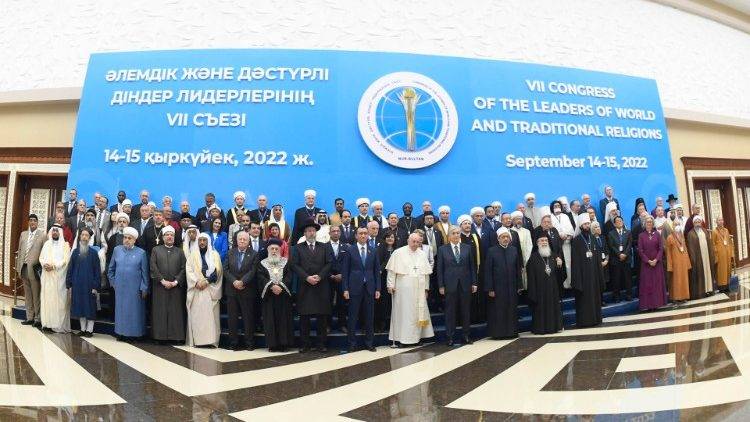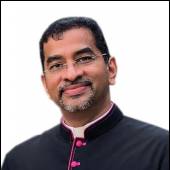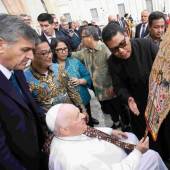Jewish Rabbi in Kazakhstan urges religious leaders to promote peace

A Jewish rabbi stressed the role of religious leaders in promoting peace in the world.
Rabbi Marc Schneier, the Executive Director of the Foundation for Ethnic Understanding (FFEU), was one of the speakers at the 7th Congress of Leaders of World and Traditional Religions, held in Nur-Sultan, Kazakhstan.
The September 14–15 event brought together delegations from various religions from around the world to search for common human landmarks and traditional forms of religion to promote mutual understanding and respect among all.
Schneier highlighted the importance of the Interfaith Congress and the impact religious leaders can have in the fight against societal ills and in the promotion of world peace.
At the same time, Pope Francis was also present in the Kazakh capital to address participants at the Congress.
On the sidelines of the two-day Congress, Vatican News’ Deborah Castellano Lubov spoke to Schneier.
Schneier said the 7th Congress was particularly significant because it took place in "a Muslim-majority country" and was "an expression of what Kazakhstan is and its commitment to inter-religious intercultural dialogue and cooperation."
He says that the presence of Pope Francis and his remarks to the religious leaders have set a tone that encourages the participants to raise their voices against the many ills facing society today.
The Rabbi distinguishes this year’s event from others where, according to him, there was a "deafening silence and moral laryngitis on the part of faith leaders."
With the Congress taking place against a backdrop of the war in Ukraine, which is in its seventh month, Rabbi Schneier upholds the impact that religious leaders and religion can have in promoting peace in conflict areas.
The Rabbi says the repeated appeals made by Pope Francis about the war "resonate not only around the world but in Russia itself," as he made reference to the absence of the leader of the Russian Orthodox Church at the event.
The Rabbi, however, seized the opportunity to highlight some of the remarkable progress made in the field of promoting interreligious dialogue, pointing to the impact of interfaith channels in terms of the Abraham Accords and the existence of interfaith centers in several Gulf countries, among others.
He also gave the example of the Abraham House in Abu Dhabi, with a church, mosque, and synagogue on the same campus–a bold step that, according to him, would have been unthinkable even a decade ago.
"There is recognition today that we not only share a common faith but we share a common fate, and our single destiny must strengthen our bonds of concern, compassion, and caring for each other," he said.
"We can expose people to different religions, but we should not impose our religious beliefs," the Rabbi says. "If we could move to that place, I know that would contribute greatly to a diminution of conflicts, wars, clashes, and confrontations." - With inputs from Vatican News
Radio Veritas Asia (RVA), a media platform of the Catholic Church, aims to share Christ. RVA started in 1969 as a continental Catholic radio station to serve Asian countries in their respective local language, thus earning the tag “the Voice of Asian Christianity.” Responding to the emerging context, RVA embraced media platforms to connect with the global Asian audience via its 21 language websites and various social media platforms.














